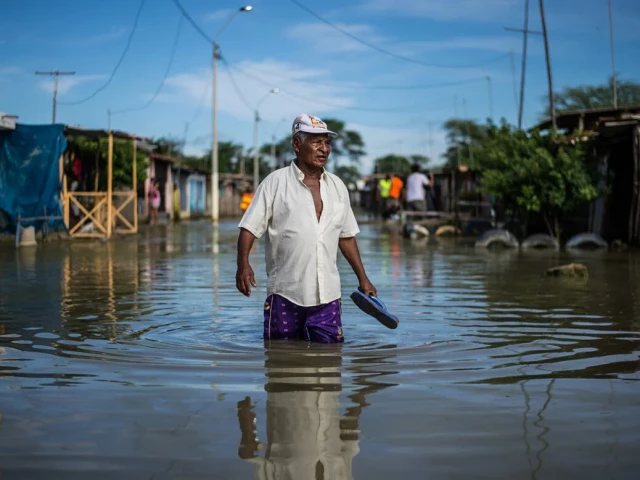In a United Nations assessment in February dubbed an "atlas of human suffering", experts laid out in devastating detail the past, present and future impacts of climate change on people and the planet they depend on.
Science now considers it unequivocal that humans are responsible for this accelerating climatic upheaval, and the next report by the Intergovernmental Panel on Climate Change (IPCC), expected in early April, focuses on how we might get ourselves out of the mess we created.
To do that the world must find a way to drastically cut the amount of planet-warming gases pumped into the atmosphere.
"We are talking about the large-scale transformation of all the major systems: energy, transport, infrastructure, buildings, agriculture and food," climate economist Celine Guivarch told AFP.
The war in Ukraine not only shows the world’s "great dependence on fossil fuels", particularly responsible for climate change, but it also could be an opportunity to make the right choices, she said.
"We are at a crossroads and depending on the decisions taken, we can contribute to making the problem of climate change worse or to find answers", said Guivarch.
But to reach carbon neutrality by mid-century, major changes must be started now, said the researcher at the International Centre for Research on the Environment and Development.
That is in part because of the inertia in human systems -- like the time it takes to build new infrastructure -- and natural ones, because CO2 remains in the atmosphere for several centuries.
- 'Never too late' -
According to the UN, emissions must be slashed almost in half by 2030 to have a hope of limiting warming to 1.5 degrees Celsius above the pre-industrial era, the most ambitious Paris Agreement goal.
But emissions are still on the rise.
Despite the urgency, some still want to do nothing.
"We hardly hear climate-sceptic commentary anymore, but there is this new 'delay discourse'," said Guivarch.
"They recognise that there is climate change and that it is of human origin, but they seek to justify minimal action or no action."
Some suggest waiting for future technological solutions to be deployed in 10, 20 or 30 years.
And people, companies and even nations may argue that since their emissions are dwarfed by bigger polluters, it is useless to take action.
Others shrug at the signs that climate change is ramping up extreme events and say it is too late to do anything about it.
"This is wrong," said Guivarch, adding that every fraction of a degree increases the impacts and multiplies the risks.
So, "it is never too late to act, because all greenhouse gas emissions avoided, stave off impacts and risks".
But she does not minimise the challenges ahead.
To trigger a real economic transformation will require bringing on board "the whole of society, businesses, citizens", while focusing investments on solutions and away from fossil fuels.
While awareness has grown since the Paris deal was signed in 2015 and decision-makers are increasingly embracing the subject, she said there is still a lack of understanding of the "orders of magnitude, the speed and the extent of the transformation that we are talking about".
"Collectively on a global scale, the actions are not up to the challenge," said Guivarch.
© Agence France-Presse
















